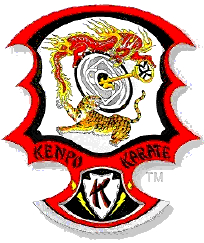|
This biography will ultimately be a little different, due to the fact
that
I, being the only editor on this editorial, have actually had the
privilege
of meeting Master of the Arts Paul Mills.
Although
I did train in Ed Parker's American Kenpo institution for most of our
education,
the training took place within Mr. Mills' family group. In fact,
most of the longest lasting and important lessons from Mr. Mills'
seminars
and others he had trained, I learned well before the AKKI was an
official
organization. Even with the new material being produced from the
AKKI, the lessons learned some time ago are just as important now as
they
were then. And those lessons are just as memorable as if they had
been covered only yesterday.
Now, as you may have noticed from the other pages on these sites, we
don't
really deal in opinions or what we feel to be true. We deal in
testimonials
of fact. It is not that the opinions are not there, we just
choose
not to write them on this site. Just as with the IKKA and Senior
Grandmaster Ed Parker's biography page, this page will have a couple of
links to find information from others about Master of the Arts Paul
Mills
and the AKKI.
Here
are some sites where this information can be found:
American
Kenpo Karate International Website
Texas
Kenpo.Com
Utah
Kenpo
Now, neither Mr. Parker's nor Mr. Mills' biography section illustrate
that
we are experts on either subject. On the contrary, we wouldn't
want
to be. They are simply illustrations of what we have seen.
Now, with that said, here is what I have seen while training and
learning
under the Paul Mills Family Group, or the AKKI. There are people
involved in the groups represented on these websites who have trained
under
different methods and ideals. However, few could argue that Mr.
Mills
and all in the AKKI are trying with everything they have at their
disposal
to keep the Art of Kenpo moving forward into the future. Keeping
the wheel of Kenpo moving forward is one of the founding reasons for
the
creation of the AKKI. On the other hand, there is almost always
more
to a story than what can be seen on the outside to the world at large.
From the moment you meet a real member of the AKKI, you will find that
all of the systems alumni are engineers of motion first. Always
striving
to find a better way to train, to execute techniques, to make the art
of
Kenpo more effective. This idea is something Mr. Mills takes very
seriously. Everything from the changes in techniques, newly
created
techniques, form changes; to the addition of actual grappling
techniques
and a great deal of additional weapons material for knives and
clubs.
All brought about from one pioneering standpoint (from my viewpoint
that
is): where haven't we gone yet?
More important then that, Mr. Mills has a sincere respect for not only
the art of Kenpo, but for all that practice within the system.
His
work within the system should illustrate this better then anything said
or written. He has truly created a system for everyone, with the
concept of sophisticated simplicity always at the helm. The
initial
training has been kept fairly easy to grasp to aid in retention.
Yet when truly examined with the proper concepts and principles, the
training
becomes more sophisticated and even ongoing due to the escalating
curriculum.
The training material is based on your ability in the Art of Kenpo, and
elevates in different concepts and principles as your level
increases.
All with one constant, to ensure every practitioner within the AKKI has
the ability to defend themselves to the best of their ability (perhaps
even a little better).
Even the choice of weapons as a part of the curriculum shows a great
deal
of thought and consideration towards what would be best for the
student.
The rope on the nunchuku was cut, the blade on the knife was
shortened.
Now the Club and Knife training implemented by Mr. Mills and the Board
of Directors in the AKKI is some of the best material available.
These two types of weapons, in regards to training, are two of the most
common and effective types of man-made tools to work with. This
factor
increases the students self-defense ability and effectiveness more than
other types of weapons in the martial arts community. More
importantly, these concepts were designed under the Universal Weapons
System
to transfer over to non-traditional weapons, which is a crucial part of
it's effectiveness. Instead of "forcing" the student to carry a
man-made
weapon with them at all times, this training involves using whatever
object
is lying around and utilize the same motion principles. The
weapons
training is also based on ability and are taught in three levels
growing
more sophisticated with each level.
There is a lot more we could go into on this biography, but this is a
pretty
good place to start. Please keep in mind that everything that is
written on these biographies could be argued by anyone inside or out of
the American Kenpo community. The fact remains that this is what
we have seen and what we believe. The best thing for anyone
reading
this who are not involved in Kenpo would be to find out for
yourself.
As it was said by Mr. Parker in the Zen of Kenpo, "To see is to be
deceived,
to hear is to doubt, to feel is to believe." We hope you have
enjoyed
and learned something from this biography.
|

 The
Journey Continues
The
Journey Continues